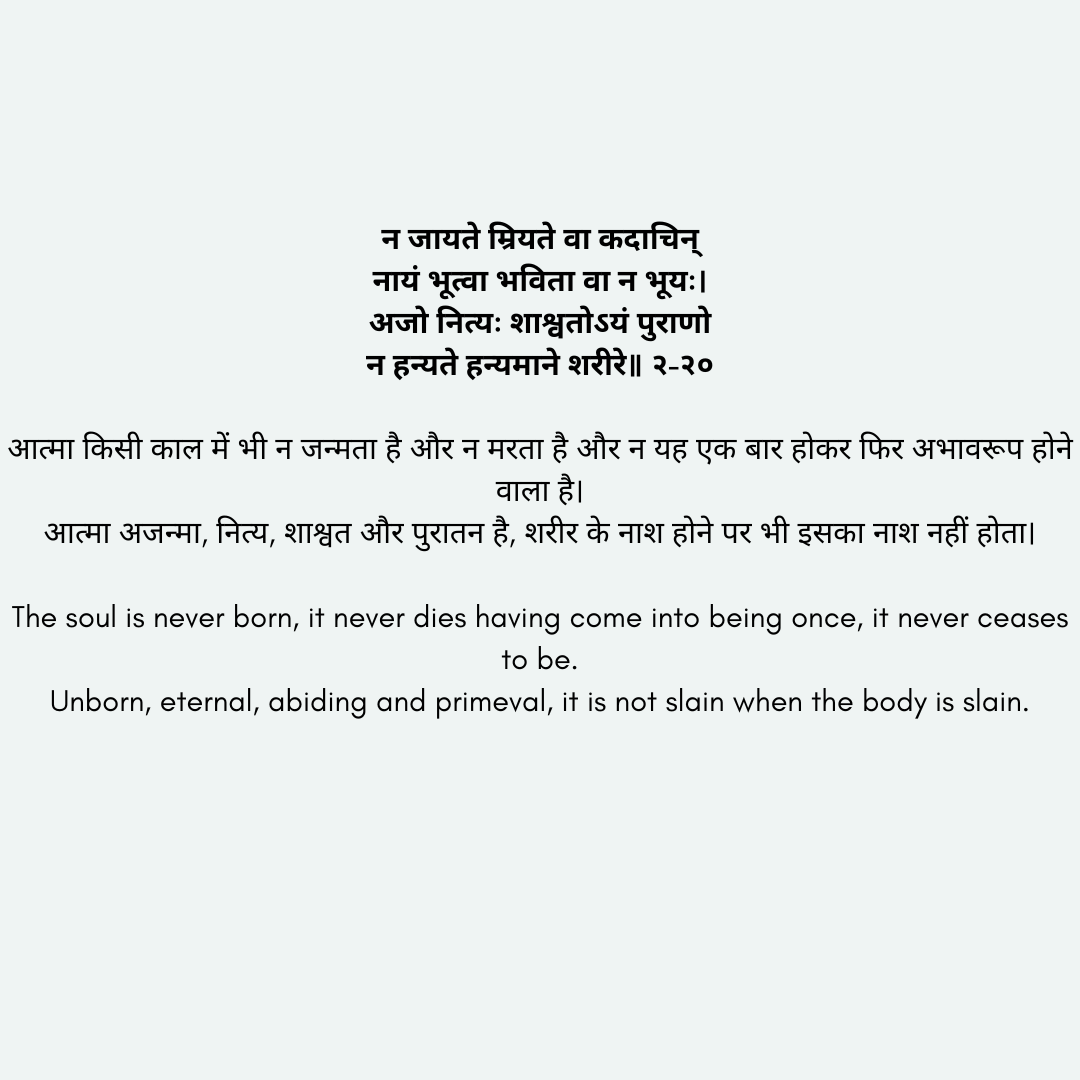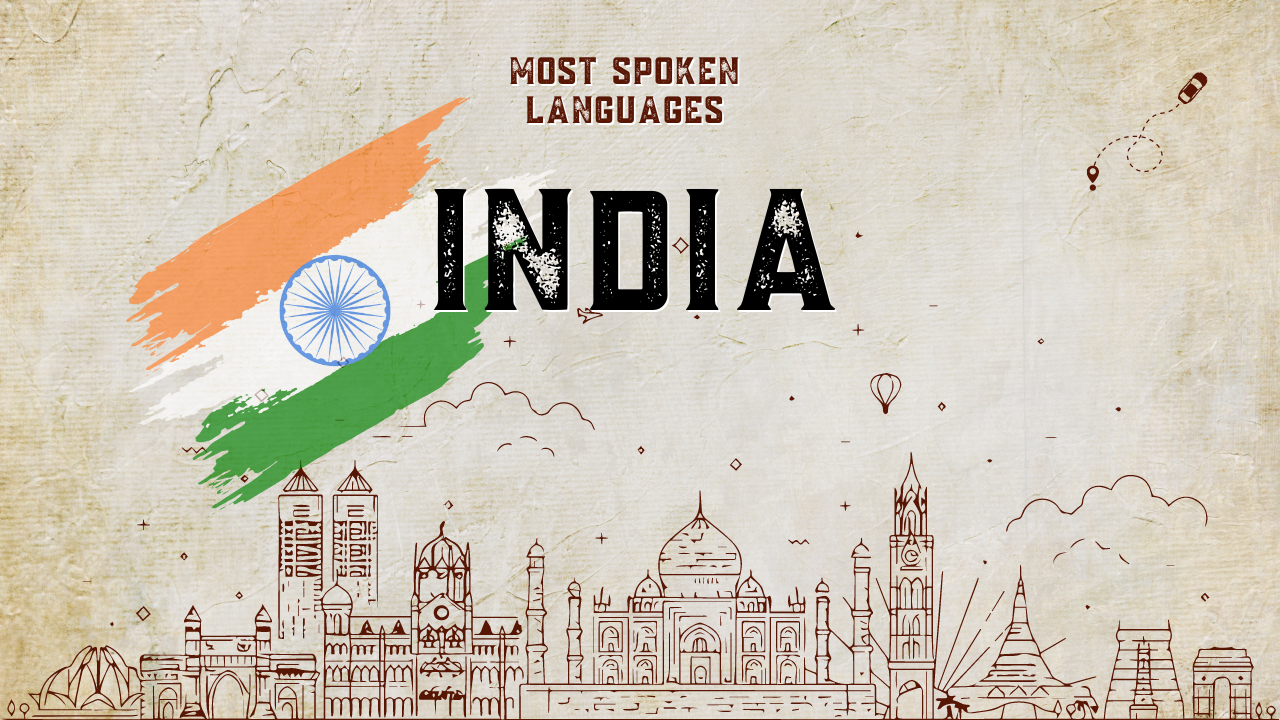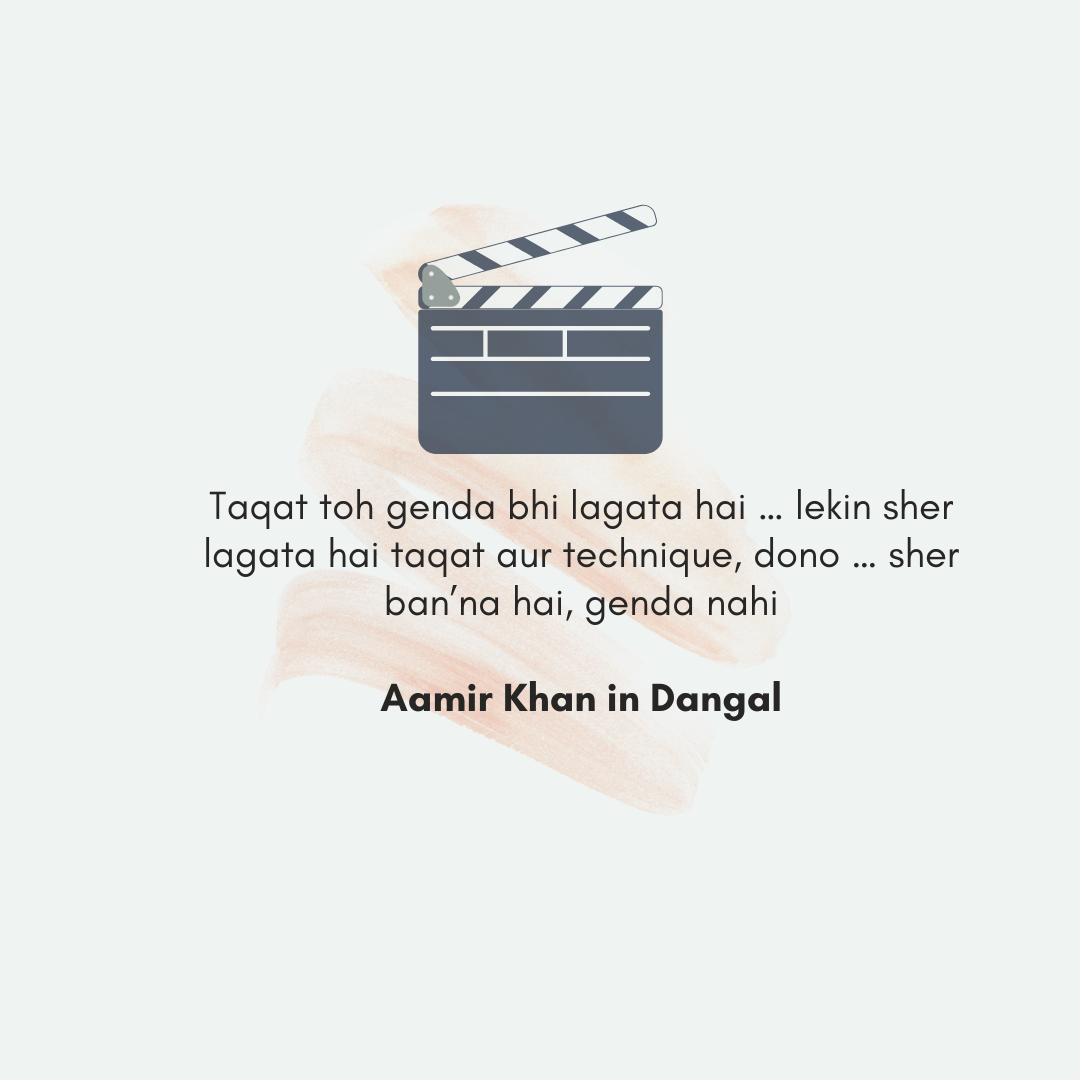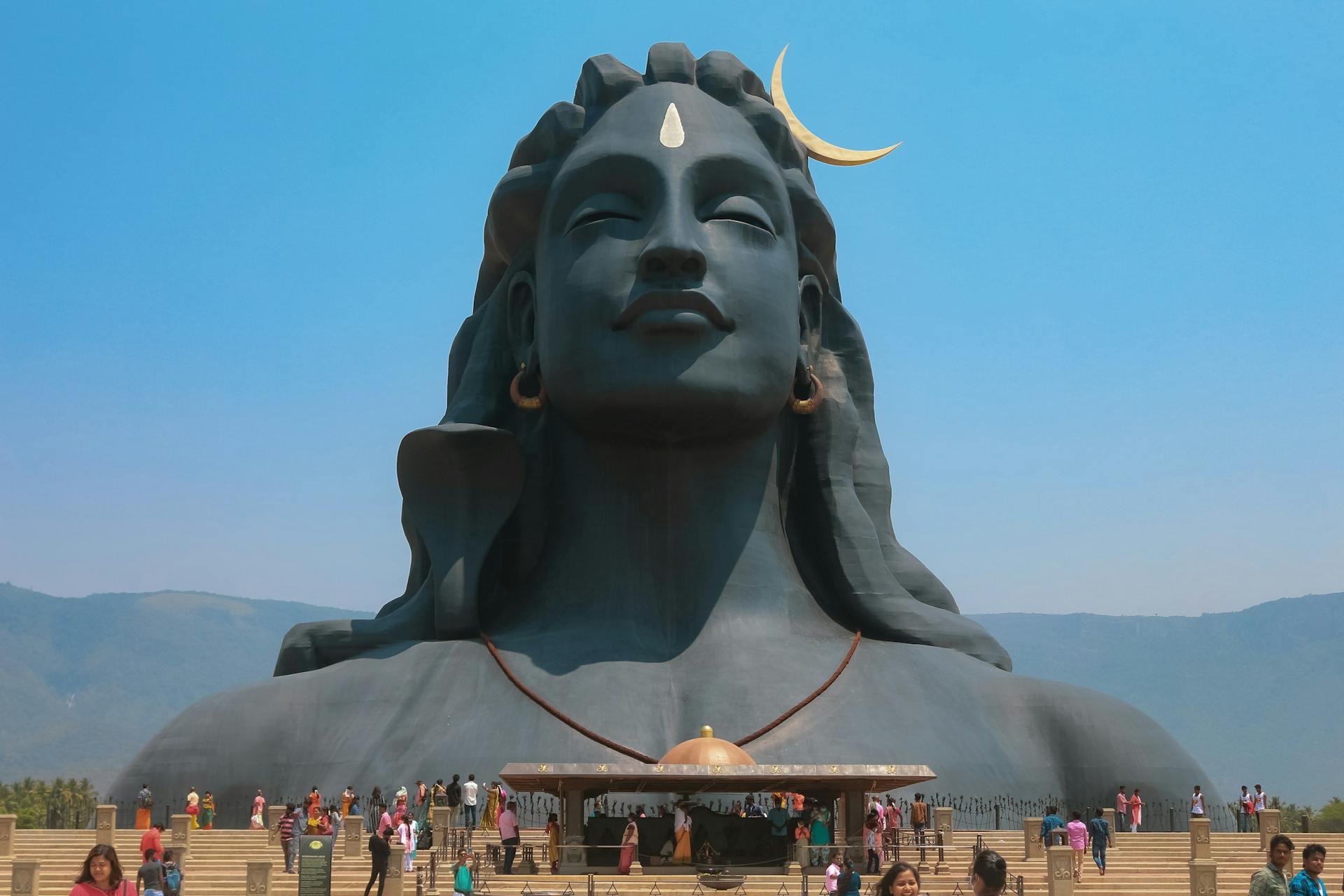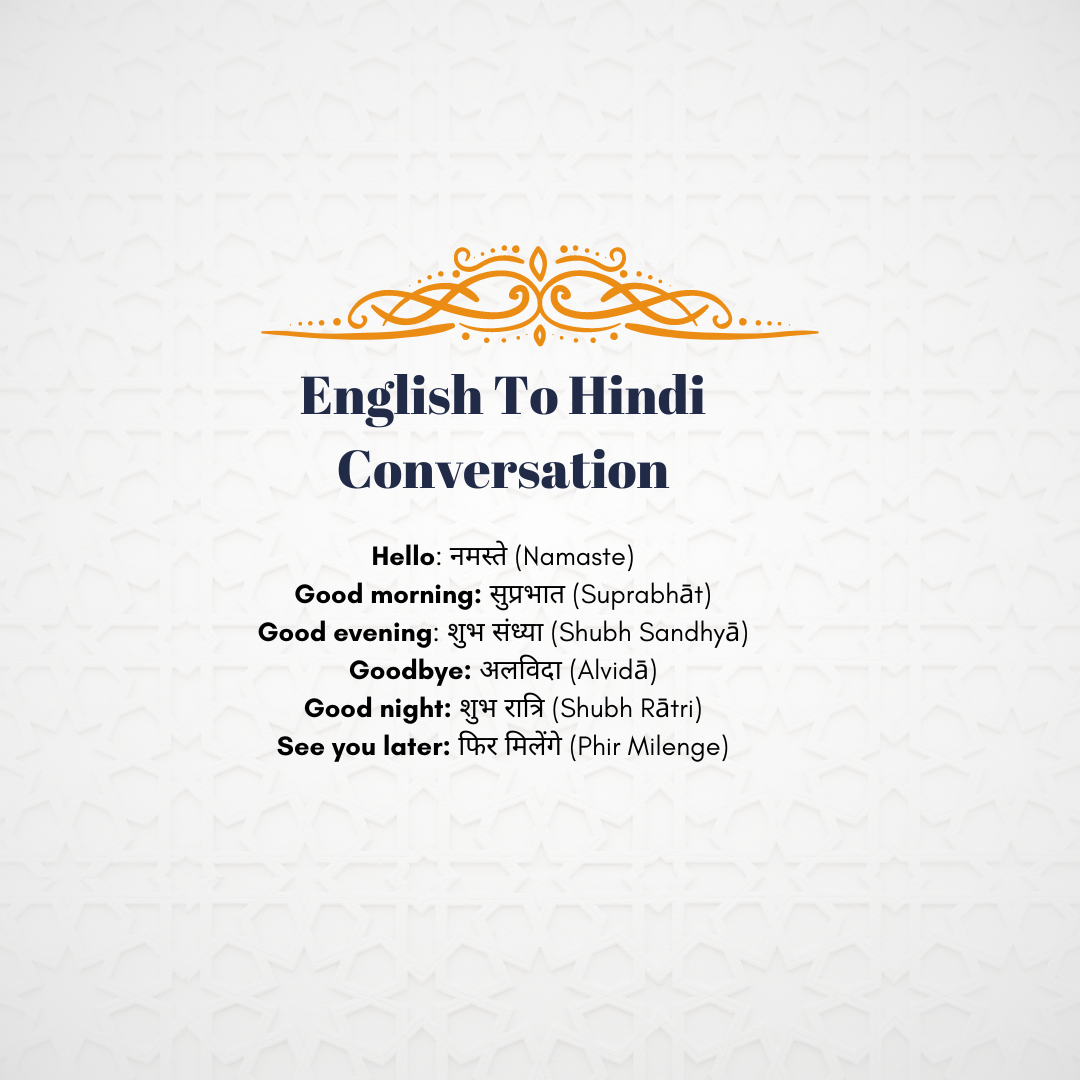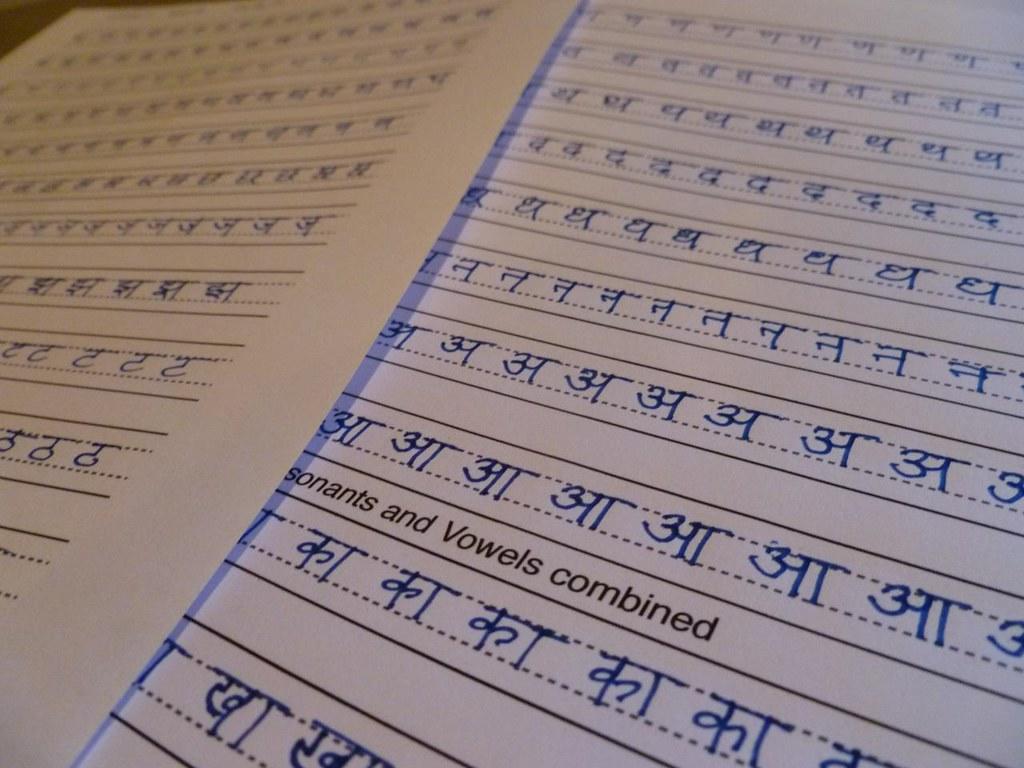India is a nation where festivities bring people together despite religious divisions. Followers of many religions observe every holiday. Diwali is a holiday observed throughout the nation, including for some Muslims. We'll talk about the various Indian festivals in this article. Keep reading to learn more about India's festivals and their significance.
India, a country with a diverse culture, hosts many festivals. They are all so unique in their essences that to experience them all would be like living a hundred lives in one. Nevertheless, these festivals highlight India's beauty, so attend at least these notable ones so you may note them in your calendar and your memory forever.

What is the Most Celebrated Festival in India?
Diwali, the largest and most significant festival in India, is a national celebration similar to Christmas in Western countries, but it is also observed by some non-Hindu communities. The festival typically takes place in October or November and lasts for 5 days, symbolizing the victory of good over evil.
India's top 10 festivals are commemorated with great enthusiasm and zeal:
- Diwali — Festival of Lights (November 1st, 2024)
- Holi — Festival of Colors (March 14th, 2025)
- Navaratri — the 9-Nights Festival for Goddesses (October 3rd to October 12th, 2024)
- Dussehra — Victory of Rama on the tenth day (October 12th, 2024)
- Durga Puja — Victory of Durga (October 9th to 13th, 2024)
- Onam — New Year in Kerala (Sep. 5th, 2024)
- Pongal — a Harvest Festival (January 14th, 2025)
- Makar Sankranti — the Kite Festival (January 14th, 2025)
- Eid-ul-Fitr — Marks the end of Ramadan (March 30th, 2025)
- Ganesh Chaturthi — Birthday of the Elephant-Headed God (September 6th, 2024)
India Festival Chart 2024
On public holidays, the general population will have a day off, and schools and most businesses will be closed. Optional holidays allow employers to decide whether to take a half or full day off work, while schools, banks, government and private offices, and businesses will remain open and operational.
| Festivals of India | Date | Public Holiday |
| Bikaner Camel Festival: Dedicated to Camels and Rajasthan culture | January 11th –12th, 2025 | Optional holiday |
| Lohri: Winter harvest festival | January 13th, 2025 | Optional holiday |
| Makar Sankranti: Harvest festival in north India | January 14th, 2025 | Optional holiday |
| Pongal: Harvest festival in south India | January 14th, 2025 | Optional holiday |
| Republic Day: Anniversary of the Constitution of India | January 26th, 2025 | Yes |
| Basant_Panchami: Festival for Goddess Saraswati (goddess of knowledge, music, learning, and arts) | February 2nd, 2025 | Optional holiday |
| Mahashivratri: Worship of Lord Shiva | February 26th, 2025 | Yes |
| Losar: Tibetan New Year | February 28th, 2025 | Optional holiday |
| Holi: Festival of Colors | March 14th, 2025 | Yes |
| Ugadi: Hindu New Year | April 14th, 2025 | Yes |
| Bihu: Assamese New Year | April 14th, 2025 | Optional holiday |
| Mewar Festival: Spring's arrival | March 31st, 2025 | Optional holiday |
| Baisakhi: Spring harvest festival in Punjab | April 14th, 2025 | Optional holiday |
| Mahavir Jayanti: Birth Of Lord Mahavir (founder of Jainism) | April 10th, 2025 | Yes |
| Good Friday: The atoning death of Jesus Christ | April 18th, 2025 | Yes |
| Hanuman Jayanti: Birth of Hanuman (the monkey god) | April 12th, 2025 | Optional holiday |
| Eid al-Fitr: Festival of Breaking of the Fast | March 30th, 2025 | Yes |
| Buddha Jayanti: Gautama Buddha's birthday | May 23th, 2024 | Yes |
| Ratha Yatra: Lord Jagannath (avatar of Lord Vishnu) | July 7th, 2024 | Optional holiday |
| Eid al-Adha: Feast of Sacrifice | June 16th, 2024 | Yes |
| Hemis: Birth of Lord Padmasambhava, founder of Tibetan Tantric Buddhism | June 16th–17th, 2024 | Optional holiday |
| Raksha Bandhan: The bond between siblings | August 19th, 2024 | Optional holiday |
| Independence Day: Freedom from British rule | August 15th, 2024 | Yes |
| Janmashtami: Birth of Krishna (8th avatar of God Vishnu) | August 26th, 2024 | Yes |
| Ganesh Chaturthi: Birthday of Ganesha (the elephant-headed God) | September 6th, 2024 | Optional holiday |
| Onam: New Year for the Malayali People in Kerala | September 6th, 2024 | Optional holiday |
| Navaratri: 9-nights worshipping three goddesses | October 3rd to 12th, 2024 | Optional holiday |
| Durga Puja: Victory of the goddess Durga over a demon | October 9th to 13th, 2024 | Optional holiday |
| Gandhi Jayanti: The birthday of Mahatma Gandhi (Father of The Nation) | October 2nd, 2024 | Yes |
| Dussehra: Victory of Rama on the tenth day | October 12th, 2024 | Yes |
| Eid Milad Un Nabi: Birthday of Muhammad (founder of Islam) | September 16th, 2024 | Yes |
| Karwa Chauth: Hindu Women's Festival | October 20th, 2024 | Optional holiday |
| Diwali: Festival of Lights | November 1st, 2024 | Yes |
| Chhath Puja: Thanking the sun god Surya | November 7th, 2024 | Optional holiday |
| Guru Nanak Jayanti: Birth of Guru Nanak (founder of Sikhism) | November 30th, 2024 | Yes |
| Pushkar Camel Fair: A decorated camel carnival, plus Rajasthan culture activities | November 9th to 15th, 2024 | Optional holiday |
| Christmas: Jesus Christ's birth | December 25th, 2024 | Yes |
Dussehra
Dussehra commemorates the victory of Lord Rama over the demon king Ravana. It is a celebration of good triumphing over evil and the importance of righteousness.
Dussehra, also called Vijayadashami, is a major festival celebrated by the Hindu community in the country. It marks the end of Navratri and the date varies each year. According to the Hindu calendar, it falls on the 10th day of the month of Kartik. In 2024, it will be celebrated on 12th October.
The festival of Dussehra or Vijayadashami is observed in different ways across the country. Some areas hold public processions, while others participate in Ram Leela. In a few cities, Ravan Dahan is organized. The main highlights of the festival include fireworks and feasting. Colorful exhibitions and fairs are also held in many places in India. Additionally, people reenact the entire Ramayana in the days leading up to Dussehra. The celebrations will continue during the Dussehra holidays in 2024.
Navaratri
During Navratri, Hindus honor the goddess Durga for defeating the demon Mahishasura. Mahishasura had been granted immortality by the powerful Lord Brahma due to his unwavering devotion, ensuring that he could never be killed.
Navratri is a nine-day Hindu festival celebrated twice a year, in the spring and autumn. It is a time for worshiping the goddess Durga and her nine forms. The festival is celebrated with fasting, prayer, and feasting.
During Navratri, people participate in various rituals and traditions. These include fasting, visiting temples, performing puja (worship), and offering prayers to the goddess Durga. Many people also observe a vegetarian diet during this time.
Navaratri Date 2024: Thu, Oct 3, 2024 – Sat, Oct 12, 2024
Diwali
Diwali commemorates the return of Lord Rama to Ayodhya after 14 years of exile. It is also associated with the goddess Lakshmi, who is worshipped for wealth and prosperity. During Diwali, people decorate their homes with lights, exchange gifts, and enjoy traditional sweets and fireworks.
The Jain tradition holds that the tradition of lighting lamps originated on the day of Mahavira's nirvana in 527 BCE. On this day, 18 kings who had assembled for Mahavira's last teachings proclaimed that lamps should be lit in honor of the "great light, Mahavira".
The Festival of Lights, known as Diwali, is a five-day celebration observed by millions of Hindus, Sikhs, and Jains globally. Diwali symbolizes new beginnings, the victory of good over evil, and light prevailing over darkness. Additionally, for some, it aligns with harvest and new year festivities.
The Festival of Lights in 2024 will be observed on Friday, November 1st, 2024.
According to Drikpanchang, the most favorable timings are from 5:36 PM to 6:16 PM. In 2024, there will be a gap of one day between Dhanteras on October 29th, 2024 and Choti Diwali on October 31st, 2024.
Raksha Bandhan
Raksha Bandhan is a festival that celebrates the bond between brothers and sisters. On this day, sisters tie a sacred thread called a Rakhi on their brother's wrist, symbolizing their love and protection.
The auspicious time to perform the Rakhi ceremony during Raksha Bandhan 2024 is between 10:30 AM and 12:30 PM
Raksha Bandhan in 2024 will be celebrated on Monday, August 19th.

Ganesh Chaturthi
Ganesh Chaturthi is a ten-day Hindu festival celebrated in honor of Lord Ganesha, the elephant-headed god of wisdom and prosperity. It is observed in the Hindu month of Bhadrapada (August-September), with the main day of the festival falling on the fourth day of the waxing moon.
During Ganesh Chaturthi, devotees bring clay idols of Lord Ganesha into their homes and temples. They offer prayers, perform rituals, and sing devotional songs. The festival is marked by colorful decorations, vibrant processions, and delicious food offerings.
Ganesh Chaturthi in 2024 will be celebrated on September 6th (Friday), marking the birth of Lord Ganesha.
Ganesh Chaturthi Tithi Start: September 6, at 3:01 PM
Ganesh Chaturthi Tithi Ends: September 7, at 5:37 PM
Ganesha Visarjan on Monday, September 16, 2024
Maha Shivratri
Maha Shivaratri honors the occasion of Shiva's marriage to the Goddess Parvati and the day he joined Mount Kailash. In the yogic tradition, Shiva is revered as the Adi Guru—the first Guru from whom the yoga discipline descended—rather than as a deity. Maha Shivarati is a night of silence and stillness that honors and is motivated by the austere dignity and restraint of Lord Shiva.
Fri, Mar 8, 2024, 5:27 PM – Sat, Mar 9, 2024, 1:47 PM
Fasting and Eating on Maha Shivratri
The fast is also known as the Maha Shivratri fast. This entails fasting from the morning of the holiday till the next day. According to the Puranas, Goddess Parvati gripped Lord Shiva's throat to prevent him from consuming the poison that was churned up from the ocean of milk. She clung to his neck for a day and a night without taking anything to eat or drink.
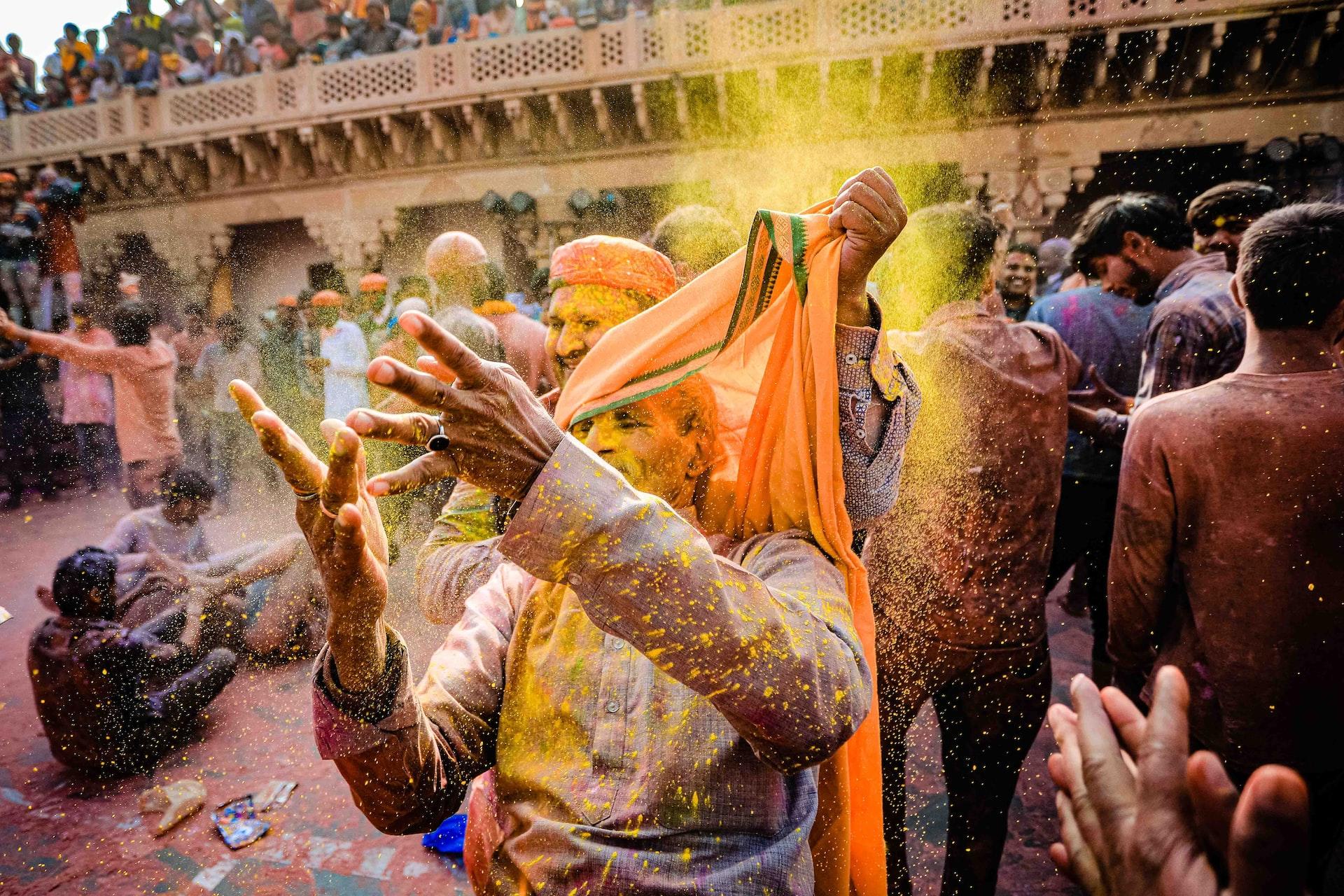
While observing a complete fast on Maha Shivratri is recommended, this may not always be possible. Those who don't fast usually make a home-cooked meal with dessert for Lord Shiva on this day before serving the rest of the family. Consequently, the following items are allowed during the fast:
- Fresh fruits
- Fresh vegetables
- Fruit and vegetable juices
- Milk
- Black or herbal tea
- Coffee
- Yogurt or buttermilk
- Salted (rock salt or sendha namak) and steamed tapioca
- Cooked sabudana, also known as sago and tapioca pearl
- Dishes made using white pumpkin
You must look after your health all day long if this is your first time observing the Maha Shivratri fast. Due to a lack of meals, you could become weary and dehydrated and experience fainting spells. Restoring electrolyte balance and reducing fatigue can be accomplished by drinking water flavored with salt and sugar. Others drink coconut water all day to avoid feeling worn out from fasting. If you feel light-headed when fasting, consuming some fruit juice or milk is okay. Before undertaking a 24-hour fast, anyone with pre-existing medical concerns needs to consult their doctor and get the go-ahead.
Appreciate the many different cultures in India with spoken Hindi classes on Superprof.
Holi
The Holi festival marks the transition from the winter to the spring season or Phalgun in Hindi. A demon from Hindu mythology named Holika is burned on the first day to symbolize a fruitful harvest. The following day is then cheerfully and wetly celebrated. Indians are encouraged by Holi to question social norms related to age, gender, position, and more. Men and women, the wealthy and the poor, the young and the old come together to celebrate this occasion, happily letting go of the past.
On March 25th, Holi will be celebrated, following the ritual of Holika Dahan on March 24th, which involves lighting a bonfire to symbolize the victory of good over evil. Holika, also known as Simhika, is a significant figure in Hinduism, and the legend of Holika Dahan represents the triumph of righteousness over sin.
Holi Celebrations
Just after dusk, people gather on Holika Dahan to sing and dance around a pyre signifying good triumphing over evil. They also engage in puja, prayers that bestow powers, wealth, and fortune upon those who recite them. On the big day itself, which varies by location and is known as Rangwali Holi, Dhulandi, Dhulandi, Phagwah, or Badi Holi, people will likely be singing, dancing, and sharing food.
Colors
The festival's most well-known feature is arguably when people paint one another. The image of festival-goers laughing while having their faces painted with vibrantly colored powders is a common representation of Holi.
Feasting
Food is a universal language that unites people, and during the Holi celebration, delectable delights are offered up to be enjoyed with friends and family. These include the classic Gujiyas, tasty dough-based dumplings stuffed with khoya, almonds, and dried fruits and dipped in sweet syrup to make them even more delectable. Additionally, they offered adults a strangely intoxicating beverage called Bhang Massi and Malpua pancakes fried in ghee and dusted with sugar.
Parties
It's time to clean up and celebrate with friends, family, and neighbors once the powdered paint has been flung and everyone is as brilliant and colorful as possible.
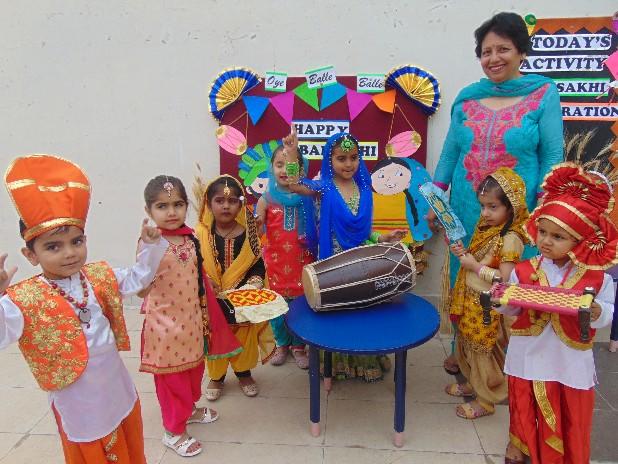
DO's
- To play Holi, only use eco-friendly and natural colors. It's crucial to play appropriately without endangering our health or the environment.
- Drink Cautiously. On the day of Holi, when you are with your friends and in a laid-back attitude, you can easily get carried away. However, abusing alcohol or marijuana can be harmful to your health.
- Extend forgiveness and makeup with your buddies that you haven't spoken to in a while. Holi is all about bringing people together, after all.
- Visit your relatives and friends now if your work demands force you to live away from your family. You also haven't seen your relatives in a while. Spend a few days celebrating Holi with your family and friends from your homeland. Use Holi as that break.
- Use water responsibly. Water is extremely valuable to humans. Use Pichkaris or water pistols rather than buckets of water if you want to play Holi with water.
DON'T's
- Avoid driving carelessly. Do not assume that your life or the lives of others are unimportant just because it is Holi. And most importantly, never drive after drinking.
- Playing Holi with your pets and stray animals is prohibited. Unlike us, they may suffer from not knowing how to clean themselves after the celebration.
- Recognize that everyone has the right to play or not. Never coerce someone into playing Holi or coloring them without their consent. That might be enjoyable for you, but it might be harassing for them.
- Using grease, synthetic colors, and other items that can harm people's skin is prohibited. People occasionally develop chemical allergies, which can seriously harm their bodies.
- Based on Holi, refrain from harassing women and girls. All girls and women are encouraged to participate exclusively in Holi festivities with those they feel safe around.
Baisakhi
The Sikhs celebrate Baisakhi by visiting the Gurudwaras, where they participate in daily prayers and bathing in the holy river. During Baisakhi, everyone is happy; many enjoy getting up and dancing all night. Special festivities are held in the Talwandi Sabo, where Guru Gobind Singh updated the treasured Granth Sahib, at the Gurudwara in Anandpur Sahib, the site of Khalsa's birth, and the Golden Temple in Amritsar. Farmers thank God for the bumper crop and pray for success in the following year. A wonderful way to welcome the festival is to see happy farmers dance in celebration while shouting "Jatta Aayi Baisakhi" over the fields.
Following the prayers or Ardas, the Karah Prasad is offered to the guru before being distributed to the general public. The Nagar Kirtan parade is then held through the streets, followed by a special guru-ka-langur or community lunch at the Gurudwaras. Everyone joins in singing spiritual hymns in honor of this holy occasion. Partygoers embrace the celebration by putting on a lively and enthusiastic song and dance performance while donning the brightest attire.
Feasting
Many food booths are set up during the Baisakhi celebrations to feed and fuel the crowds as they party all night. Authentically Punjabi foods like Chhole Bature, Achari Mutton, Chicken Saagwala, Sarson Ka Saag, Kadhi Chawal, Dried Fruit Kheer, and the well-known lassi are always available at the fair. These culinary miracles are the ideal representation of Punjabis' incredible love of flavor and food.
Dancing
During Baisakhi, the ancient dances of Bhangra and Gidda are performed to the rhythm of the drums in open fields, generating a festive mood. In some locations, fairs are conducted where people display their joy and engage in acrobatics. Men, women, and kids dress in vibrant clothing and jewelry as they eagerly participate in the celebrations.
Kirtan or Processions
One important element of the celebrations in Punjab is the Nagar Kirtan, also known as the Baisakhi Procession. The Panj Piaras, the five senior religious Sikhs and an important part of the Khals traditions, uphold the Granth Sahib with dignity as the most sacred text. Baisakhi processions move through the streets and alleyways of the city while being accompanied by music, singing, hymns, and scripture chanting. Many worshippers attend the Baisakhi processions.
Eid ul Fitr
With the celebration of Eid ul Fitr, the strict fasting and prayer of Ramadan conclude. The Islamic calendar is lunar-based, so the fast is broken when the crescent moon is seen in the night sky and continues all day the next day3. The purpose of Eid al-Fitr is to foster family, love, and brotherhood, while the holy month of Ramadan serves as a time to purify the soul and give thanks to Allah. It also serves as a welcome gesture for Muslims returning to regular life.
Prayer
Open spaces, mosques, and community halls are common places to pray on Eid. During this ritual, the muezzin's call to prayer is not sounded. After the prayer, a sermon is offered, and then a supplication is made, asking Allah for his mercy, forgiveness, and world peace.
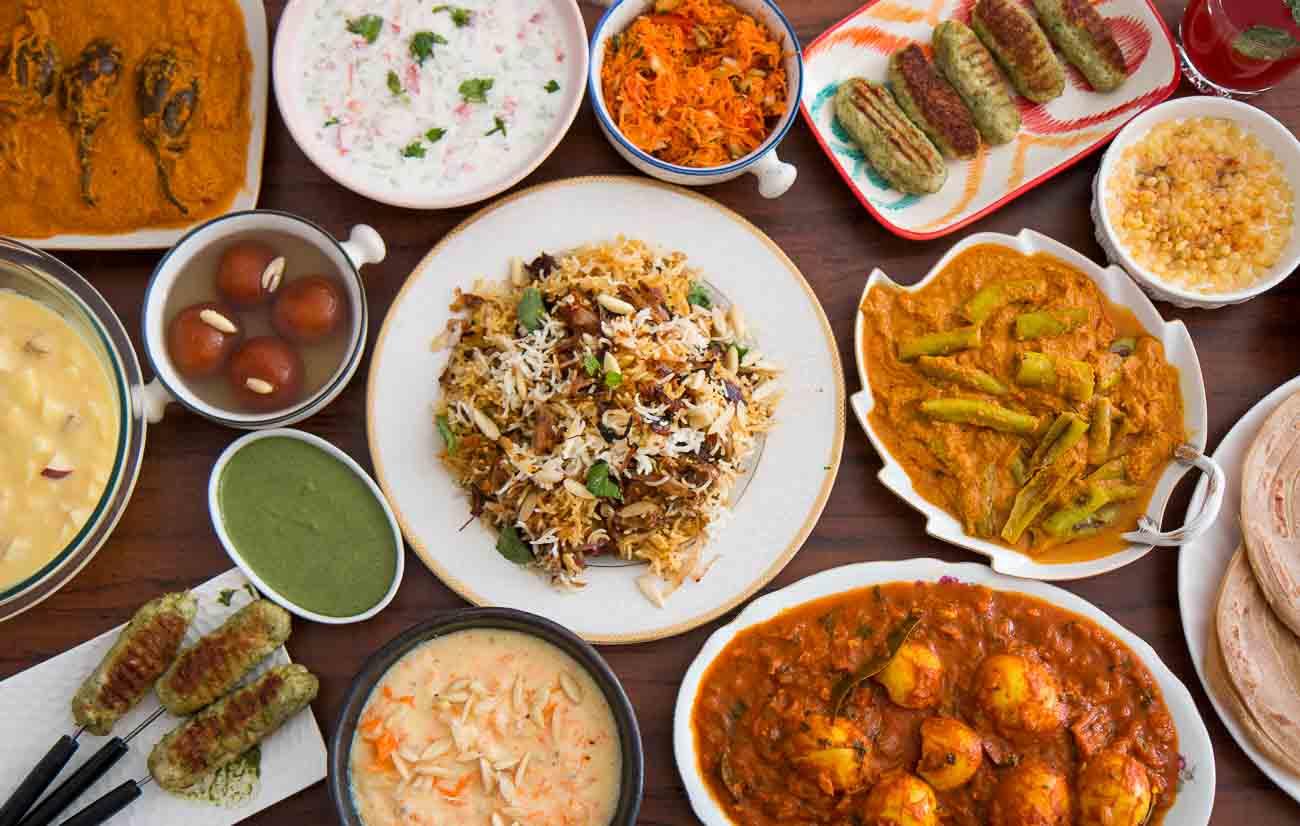
Sunni Protocol
Sunni Muslims use the resounding "Allahu Akbar" cries to praise Allah. The recitation only stops when they get to the mosque. Niyyat for the prayer is performed before the prayers start. The next thing the Imam says is Takbir, which is a three-time recitation of Allahu Akbar. The Imam then reads the first Rakat of Surah-e-Fatiha.
Shia Protocol
Five Takbirs follow the Shia style of starting the prayer with Niyyat. A specific Dua accompanies every Takbir that the Muslims recite. After that, everyone participates in Ruku and Sujud as they would in other prayers as the Imam recites Surah al-Fatihah.
Food
During Eid ul Fitr, Muslims are not permitted to fast. To begin the ceremony, dates, and other sweets are offered for breakfast. Following that, groups of friends and family join together for lunch to enjoy a variety of local dishes such as kahk, kunafa, and qatayef.
The feast is considered insufficient without a big spread of food, including haleem, biryani, kebabs, nihari, and the traditional dessert known as sewayin. After the Eid prayers, Muslims congregate with their friends, family, and acquaintances. They rent large facilities or organize sizable parties in their homes or community centers.
Advice For Tourists Traveling To India During Festivals
India is a land of festivals, and each festival is celebrated with great enthusiasm and fervor. If you are planning to visit India during a festival, here are some things you need to know:
Choose the right festival
There are many festivals celebrated in India throughout the year, so you need to choose the one that interests you the most. Some of the most popular festivals include Diwali, Holi, Dussehra, and Ganesh Chaturthi.
Indian festivals are celebrated with passion and if you choose the type of festival you want to see, you must research in advance.
Book your tickets in advance
Festivals are a peak tourist season in India, so it is important to book your flights and accommodation well in advance.
Be prepared for crowds
If you are traveling to India before a festival such as Holi or Diwali, ensure you are aware of the crowd that comes with these festivals. Festivals in India can be very crowded, so be prepared for long lines and large crowds. Festivals can be a target for pickpockets and other criminals, so be aware of your surroundings and keep your belongings safe.
Dress appropriately
During festivals, it is important to dress modestly and respectfully. Avoid wearing revealing clothing or anything that could be considered offensive.
Immerse Yourself
Festivals in India are a unique and unforgettable experience. Embrace the culture and enjoy the festivities!
Learn more about different Indian cultures with online spoken Hindi classes.
Summarise with AI:
















